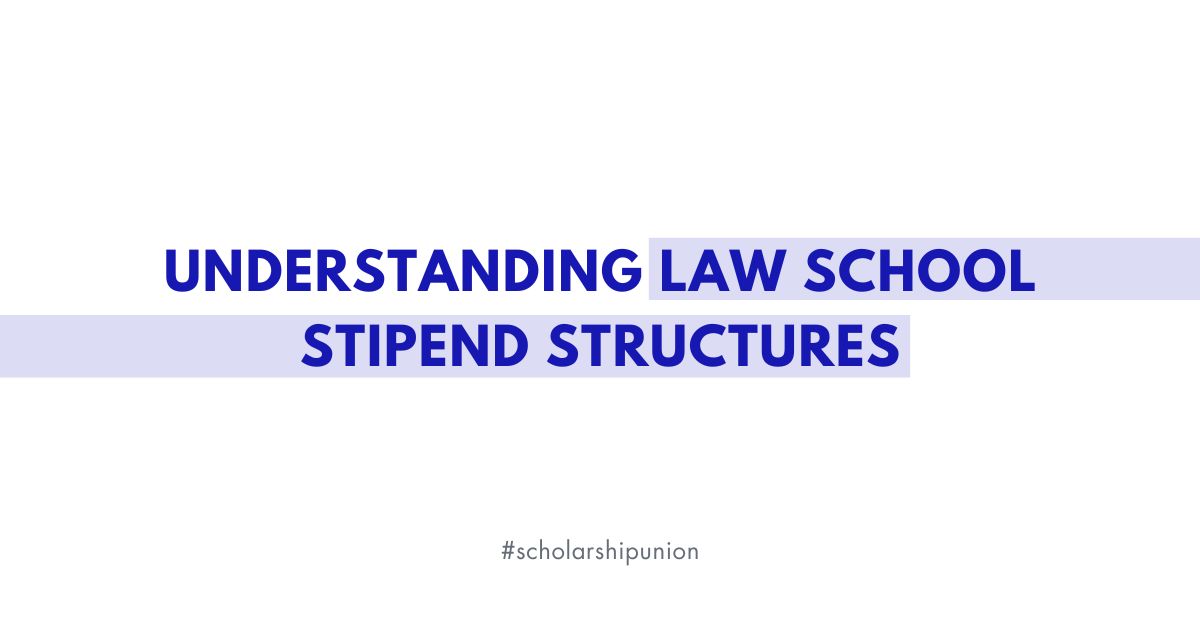Pursuing a graduate degree is a big step, but for many minority students, the biggest hurdle isn’t academics—it’s the cost. Tuition, fees, and living expenses add up quickly, making financial aid a crucial part of the journey. Fortunately, there are numerous fellowships, scholarships, and grants designed specifically to support minority students in graduate programs. Check also: Full Scholarships for International Students in the USA
In this guide, we’ll explore graduate school fellowships for minorities, how they differ from other types of financial aid, and where to find the best funding opportunities. Check also: What Are Scholarships That Require Financial Need?
Table of Contents
What Are Graduate School Fellowships for Minorities?
A graduate school fellowship is a financial award that helps cover the costs of a graduate degree. These fellowships are typically merit-based and provide funding for tuition, fees, and sometimes even a stipend for living expenses.
How Are Fellowships Different from Other Financial Aid?
The biggest advantage of fellowships is that, unlike student loans, they don’t need to be repaid. Many also come with additional perks, such as:
- Prestige and Recognition – Fellowships can enhance your resume and academic profile.
- Networking Opportunities – Many fellowships connect recipients with mentors and professional networks.
- Exclusive Academic Events – Some programs provide access to special conferences and research opportunities.
For minority students, these fellowships not only offer financial support but also help build professional connections in industries where they may be underrepresented.
Check also: MBA Fellowship Programs for Minorities
Where to Find Graduate School Fellowships for Minorities
Several organizations offer fellowships for minority students in graduate programs. Here are some top sources:
- Ford Foundation Fellowship – Supports underrepresented students pursuing research-based Ph.D. or Sc.D. programs.
- National Science Foundation (NSF) Graduate Research Fellowship – Provides funding for students in STEM fields, including underrepresented minorities.
- Paul & Daisy Soros Fellowships for New Americans – Open to immigrants and children of immigrants, offering generous funding for graduate education.
If you’re interested in STEM fields, business, or the humanities, specific fellowships cater to different disciplines, so it’s worth researching the best fit for your area of study.
Graduate School Scholarships for Minorities
Another excellent funding option is scholarships. Like fellowships, scholarships do not require repayment and are awarded based on various factors, including academic achievement, financial need, or personal background.
Check also: Empowering Women | Scholarships You Need
Types of Scholarships Available
- Merit-Based Scholarships – Awarded to students with outstanding academic performance, leadership skills, or unique achievements.
- Need-Based Scholarships – Available for students who demonstrate financial need.
- Field-Specific Scholarships – Targeted at students in certain fields like STEM, education, or the arts.
- Identity-Based Scholarships – Designed for specific minority groups, such as:
- The Hispanic Scholarship Fund – Supports Hispanic students across various academic disciplines.
- United Negro College Fund (UNCF) – Provides financial aid to Black students attending accredited universities.
- American Indian Graduate Center – Offers funding for Native American and Alaska Native students pursuing graduate degrees.
Many universities also have internal scholarships for minority students, so always check with your school’s financial aid office.
Graduate School Grants for Minority Students
Grants, like scholarships, are another form of financial aid that does not need to be repaid. However, grants are usually need-based rather than merit-based.
Where to Find Graduate School Grants
- Federal Pell Grants – While typically for undergraduates, some graduate students may qualify under specific conditions.
- The Gates Millennium Scholars Program – Offers grants to outstanding minority students pursuing graduate education.
- Minority Serving Institutions (MSIs) – Many historically Black colleges and universities (HBCUs) and Hispanic-serving institutions (HSIs) offer grants to minority graduate students.
Grants often require proof of financial need, so be sure to prepare documentation such as tax returns, FAFSA information, and financial statements when applying.
Graduate Assistantships: Another Funding Option
If you’re looking for a way to earn money while studying, a graduate assistantship might be the perfect solution. These positions allow students to work within their university—often as teaching or research assistants—in exchange for tuition coverage and a stipend.
Check also: Scholarships for Special Education Teachers | Funding Your Future
Benefits of Graduate Assistantships
- Tuition Remission – Many assistantships cover full or partial tuition costs.
- Professional Experience – Gain hands-on experience in research or teaching that can boost your career prospects.
- Networking – Working closely with professors and university staff can open doors for future opportunities.
Many universities list assistantship opportunities on their financial aid or graduate school websites, so be sure to check with your institution.
How to Find and Apply for Graduate School Funding
Finding the right funding opportunities takes time and research, but these tips can help:
1. Start Your Search Early
Many fellowships and scholarships have early deadlines, sometimes a year before your program starts. Begin researching options as soon as you decide to pursue graduate school.
Check also: Graduate Program Scholarships for Immigrants | Seek Opportunities
2. Use University Resources
Most universities have financial aid offices and graduate school advisors who can guide you to relevant funding opportunities. You can also check department websites, as many offer field-specific scholarships.
3. Explore External Scholarship Databases
There are several websites dedicated to listing scholarships and fellowships, including:
- Fastweb – A free scholarship search platform.
- Scholarships.com – Provides a comprehensive list of scholarships and grants.
- The National GEM Consortium – Offers fellowships for underrepresented minority students in STEM fields.
4. Network and Seek Recommendations
Professors, mentors, and professionals in your field can provide valuable insights into funding opportunities. Strong letters of recommendation can also boost your chances of securing fellowships and scholarships.
Check also: Student Loans for PhD Students | A Complete Guide
Conclusion: Making Graduate School Affordable for Minority Students
Graduate education can be expensive, but with the right funding strategies, it’s entirely possible to pursue an advanced degree without accumulating massive debt. Fellowships, scholarships, grants, and assistantships offer various ways to finance your education while gaining valuable experience.
By starting your search early, leveraging university resources, and applying to multiple funding opportunities, you can make your dream of graduate school a reality. Remember, financial aid is available—you just need to take the initiative to find and apply for it.
Check also: Study Abroad Without IELTS | Top 5 Countries for 2025-2026
For more information on financial aid options, check out Federal Student Aid, which provides details on government grants, loans, and work-study programs.
With persistence and careful planning, securing funding for graduate school is within reach. Your future is worth the investment—go for it!
⚠️ Disclaimer
Scholarship Union shares publicly available scholarship opportunities for informational purposes only. We are not affiliated with or endorsed by any listed institution unless clearly stated.
Listings may come from public sources or user submissions. We do not guarantee their accuracy, completeness, or availability.
To report issues or request updates, please contact us here.
Discover more from Scholarship Union
Subscribe to get the latest posts sent to your email.









